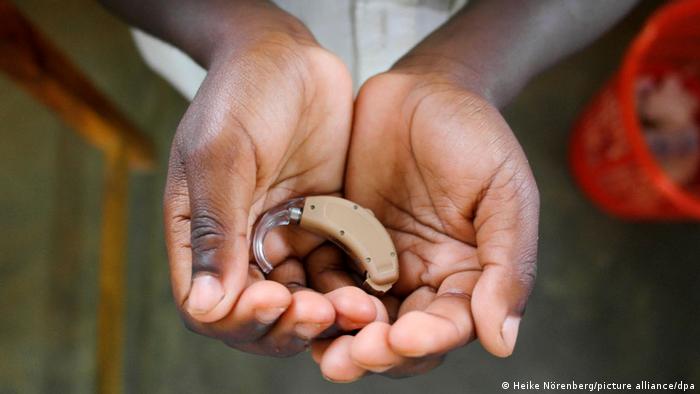ITS the month when facial hair goes into overdrive to raise money for charity Movember and awareness of mens health.
As well as mental health, that means male cancers survival rates have been steadily improving since the 1990s, but more needs to be done.
Karen Robb, director of programme implementation for cancer at Movember, says: For prostate cancer alone, we need to develop new tools to accurately distinguish cancers that require aggressive treatment from those that will never threaten a mans life, thus sparing some men from aggressive treatments.
Another goal is to improve the quality of life of men living with prostate cancer.
Some 14,000 cases of prostate cancer were missed in the pandemic due to delays in accessing care, while three in four men want better access to treatment information, says charity Prostate Cancer UK.
We must get better at spotting cancer and seeking help early. So dont be shy, guys, heres our guide to prostate, testicularand penilecancers...
TESTICULAR CANCER
TESTICULAR cancer tends to affect men aged 15-49. There are different types, but germ-cell testicular cancer (cells used to create sperm) accounts for 95 per cent of cases.
Actor Tim Roths son Cormac, 25, died from Choriocarcinoma, a form of germ-cell cancer. Besides age, race and ethnicity are also factors, advises Karen. She adds: The risk is higher in the US and Europe and lower in Africa and Asia.
THE STATS:According to the NHS, around 2,300 men in the UK are diagnosed with testicular cancer each year.
SIGNS AND SYMPTOMS: Lumps in the testicles, or pain or swelling that wasnt there before and doesnt feel right.
CHECK YOURSELF: Get familiar with your testicles a quick check in the shower is most effective.
Karen says: Not all irregularities mean cancer. But if you notice a lump that wasnt there before, let the doctor have a look.
WILL I BE EXAMINED?Karen says: Your doctor is likely to check your testicles. Try to relax, they will have done this many times before. They might ask you to lie down or they might do it standing.
Feel free to use your hand to move your penis out of the way while they do it.
TREATMENT: It has successful long-term cure rates, around 98 per cent.
Karen says: Treatment will depend on the type and stage of your cancer but might include surgery to remove the testicle, or radiotherapy. Chemotherapy is often used treat remaining cancer cells that may have spread to other parts.
PROSTATE CANCER
THE prostate is a gland around the size of a walnut and grows with age.
It sits underneath the bladder and surrounds the urethra, the tube that carries urine out of the body.
Some prostate cancers which mainly affect men over 50, those with a family history and those of African or Caribbean descent grow too slowly to cause any problems, so wont ever need treatment.
Some grow quickly and are more likely to spread to other parts of your body.
THE STATS: Prostate Cancer UK notes it is the most common cancer in men one in eight get it. 52,000 Brits are diagnosed annually and more than 12,000 die each year.
SIGNS AND SYMPTOMS: Frequent peeing, especially at night. Difficulty starting urination or holding back, erectile issues, pain on ejaculation, blood in urine or semen.
Karen says: Not everyone has symptoms. Often it is picked up by a doctor at a routine check. If you have concerns or are in an at risk group, or over 50, speak to your GP.
WILL I BE EXAMINED? Your GP is likely to ask for a urine sample and take a blood sample.
They may examine your prostate by inserting a gloved finger in your bottom.
TREATMENT: Options include active surveillance, prostatectomy surgery, radiotherapy, hormone treatments and chemotherapy.
Karen says: If you are diagnosed, keep in mind that many prostate cancers are slow-growing and may not need surgery or other radical treatment.
PENILE CANCER
A RARE cancer that mostly affects the skin of the penis and foreskin.
Half of all cases are caused by human papillomavirus (HPV).
You can get HPV from any skin-to-skin contact of the genital area, from vaginal, anal or oral sex and sharing sex toys. But most people affected by HPV will not develop penile cancer.
You are more likely to be diagnosed if you smoke, are over 50 or have struggled with penis hygiene because of foreskin problems.
Those with a weakened immune system due to a condition such as HIV, or those who have had treatment for psoriasis with medicines called psoralens, and PUVA treatment for skin diseases, are also at greater risk.
THE STATS: 700 men in the UK are affected each year, according to Cancer Research UK, but rates have been increasing over the last 30 years.
SIGNS AND SYMPTOMS: A growth or sore on the penis that doesnt heal in four weeks, a rash, bleeding from the penis or under the foreskin, smelly discharge, thickening of the skin or foreskin, a change in the skin colour, a lump in the groin, fatigue, stomach pain or losing weight without trying.
CHECK YOURSELF:Keep an eye out for any unusual skin changes or sores and see a GP if they persist for four weeks.
WILL I BE EXAMINED: A biopsy is usually performed to diagnose penile cancer. A sample of tissue is taken from the affected area under local anaesthetic.
TREATMENT: Chemotherapy creams, laser treatment and cryotherapy cold therapy to freeze the cancer cells are option which may be offered.
In advanced cases, surgery may be necessary and could involve removing the cancer and a small area around it to stop it coming back.
In rare cases, some or all of the penis would need to be removed, but only when no other treatment is possible.




